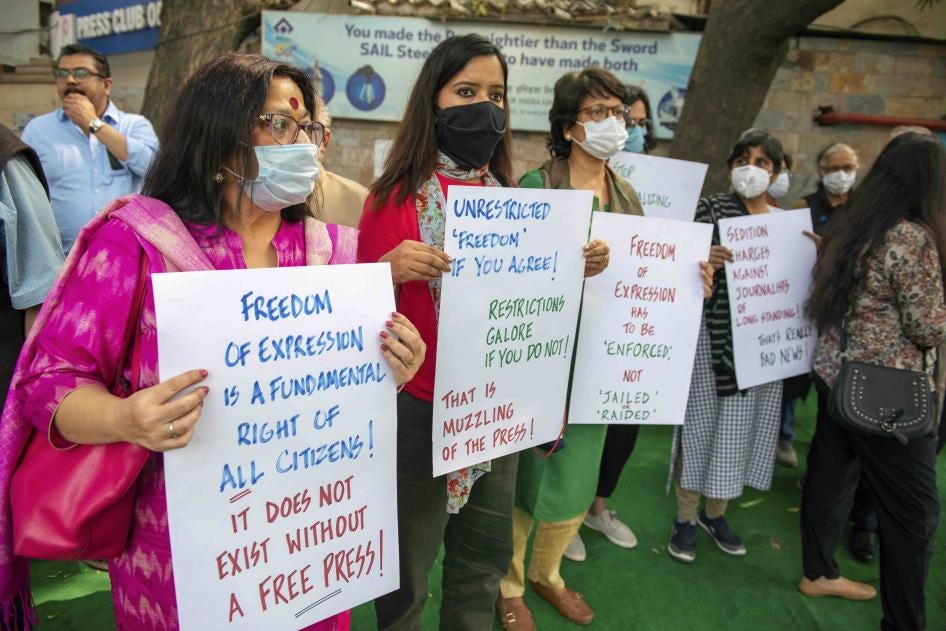
The existence of journalism is under threat
Don't Miss
Editorial, EOI, 4 May 2024 : Journalism is under attack on an international scale, both from outside and from inside, as recent developments have revealed. The most glaring evidence of attack from outside is from war-torn Gaza, where a total of 97 journalists are estimated to have been killed since October last.
Reporters Without Borders puts the number at 108. In the first 50 days of the conflict, journalists were being killed at a rate of roughly one per day, making Gaza the most dangerous conflict for journalists since the Committee to Protect Journalists began keeping records in 1992.Some of those were the inevitable ‘collateral damage’ of the conflict, caught in crossfire because they were working close to active fighting.
But Israeli troops have also been accused of targeting many of the journalists because of their work. Many of them were reporting in the field and were clearly identifiable as journalists.
Others were killed by strikes that specifically targeted their homes. Of course, the life of a journalist is no more precious than that of anybody else, but the issue at stake is not the safety of journalists but the right to know.
The trouble is, if journalism is criminalized, dismissed or sidelined as it tells inconvenient truths, capacity for sensible public debate will be lost in society. Thanks to social media, there is enough information available, but often full of rumour, conjecture and opinion.
In the absence of professional journalists, what will be missing is information underpinned by the necessary journalistic rigor, without which it becomes impossible to filter out reliable fact from conjecture, rumour and pure fiction.
Not only Gaza, journalism is under unprecedented assault all over the world. The Committee to Protect Journalists has estimated that on December 1 last year there were 320 journalists in prison in the world. In an analysis of the charges the journalists are facing, the CPJ has found that almost two-thirds of them are being held on broadly described “anti-state charges,” like terrorism, sedition, and treason.
The troubling conclusion is that governments have taken to treating journalism not as something that supports the state by upholding democratic values such as transparency, accountability and vibrant public debate; but as an existential threat.
The threat from within comes from social media which is now cornering an increasing share of advertising revenue.
News outlets have relied for so long on advertising to sustain them. They will find it difficult to recover once the advertisement revenue goes elsewhere.
Social media isn't trying to kill journalism; because social media has never really cared about journalism. Social media is resolutely in the attention business.
The business of most news outlets has been primarily about attracting attention, not delivering the best or highest quality news. Data on the shifting share of advertising, in Australia and elsewhere, makes clear the profound change of the last two decades.
Money previously spent on print advertising and direct mail has migrated to search, social media, and online classifieds.
Money spent on television advertising has moved as well, though more slowly and mostly just in the last decade.
The development of more effective and efficient advertising tools is what killed traditional newspaper operations, not the circulation of news on social media. The commercial failure of news organisations is not due to their journalism product but because they are no longer nearly so strong a tool for attracting attention for advertisers


0 Response to "The existence of journalism is under threat"
Post a Comment
Disclaimer Note:
The views expressed in the articles published here are solely those of the author and do not necessarily reflect the official policy, position, or perspective of Kalimpong News or KalimNews. Kalimpong News and KalimNews disclaim all liability for the published or posted articles, news, and information and assume no responsibility for the accuracy or validity of the content.
Kalimpong News is a non-profit online news platform managed by KalimNews and operated under the Kalimpong Press Club.
Comment Policy:
We encourage respectful and constructive discussions. Please ensure decency while commenting and register with your email ID to participate.
Note: only a member of this blog may post a comment.